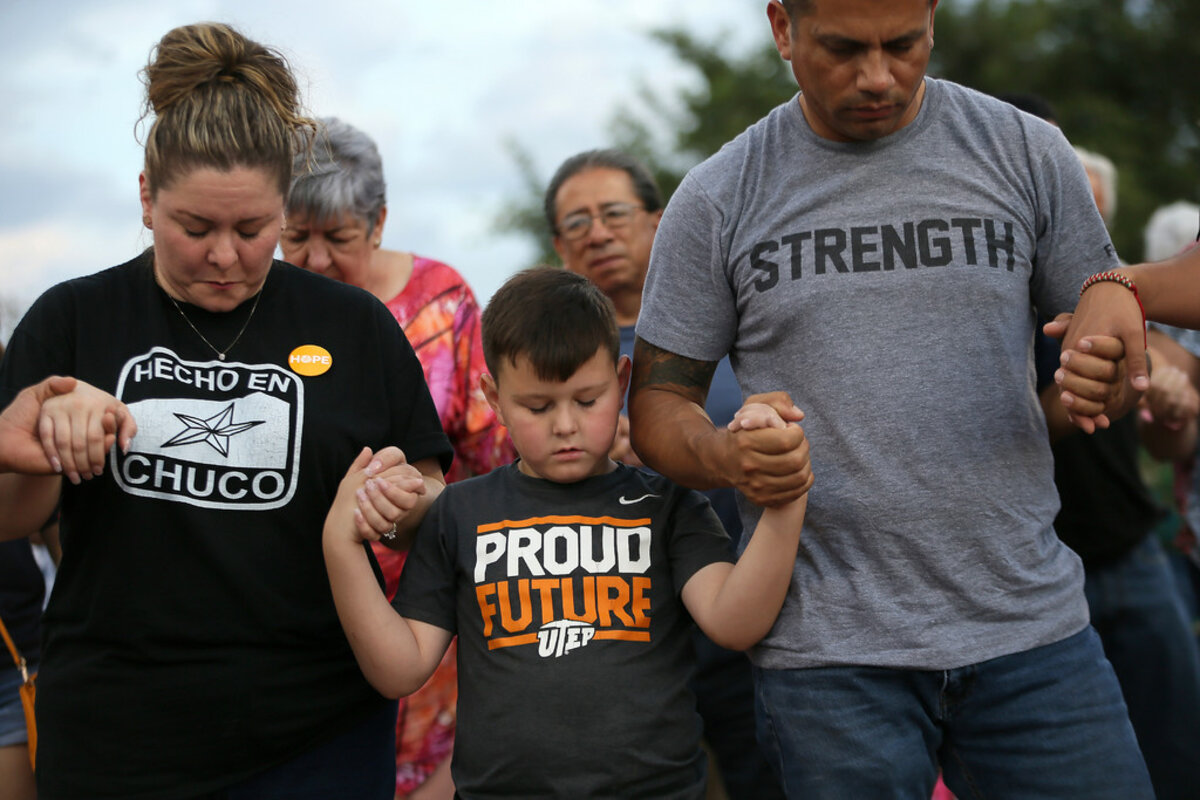At a vigil Sunday for the nine people killed in the Dayton, Ohio, massacre, Mayor Nan Whaley was forced to calm an angry crowd. Many shouted “do something” about gun violence. The mayor’s response: “There will be time to take action. But let us come together as a community as we work to heal. We are here to heal tonight.”
At Sunday’s vigil in El Paso for the 22 people killed by a young Texas man, people also were searching for solutions to mass murder, such as a crackdown on “white terrorists” and social media. U.S. Rep Veronica Escobar said that El Pasoans must first console each other and honor the victims.
“If there’s one thing we can do, it’s that we can demonstrate to the country what we need now. It’s simple, it’s love,” she said.
In both vigils, local leaders were doing for the angry crowd what should have been done for the two angry gunmen before they attacked: restoring their connections to others, whether it be family, schools, civic communities, workplace, or faith groups.
Too many recent mass killings have been by young men adrift in society, often with mental or emotional disturbances. Many are easy prey for radical online groups that give them a sense of belonging and a violent path to appear as martyred heroes.
“Our religious and community institutions, the glue that bonds us are declining as a central force in society while the politicization of every aspect of life rises,” wrote U.S. Rep. Steve Scalise, himself a victim of a 2017 mass gun attack, after the El Paso killings. “These shooters turn to hatred and violence.”
New laws and tougher enforcement can do only so much to end mass killings. Even curbing bigoted political rhetoric, hardening security in public places, or banning violent video games will not deal with the root cause: disturbed young people prone to kill. What’s needed is a broader embrace by all of society to spot and then coach and counsel those dealing with loneliness, depression, anger, and similar conditions.
A good example is “friendship benches,” an idea started in Zimbabwe and that has spread to New York, London, and elsewhere. These are nontraditional safe spaces, such as a public bench, in which trained people invite strangers to discuss their problems for free and in anonymity. If the problems are severe, professional services are offered. Another example is the Chatty Cafe Scheme, a similar offer to sit in cafes and examine one’s self with a volunteer counselor.
A pioneer in such community-based counseling, Vikram Patel of Harvard Medical School, says that the help many people need to manage their emotions or mental health can be found in neighborhoods and homes. The focus should be on the quality of social relations. “Many people will mock the idea of love being a potent medicine,” he writes, but love is the “most powerful intervention.”
Everyone has a right to mental health, he says, and that health can be encouraged by teachers, clergy, and anyone in a person’s life – even strangers on a bench.
The most urgent task is to reach estranged young men drawn to violent ideologies and help them feel worthy of love and respect.





